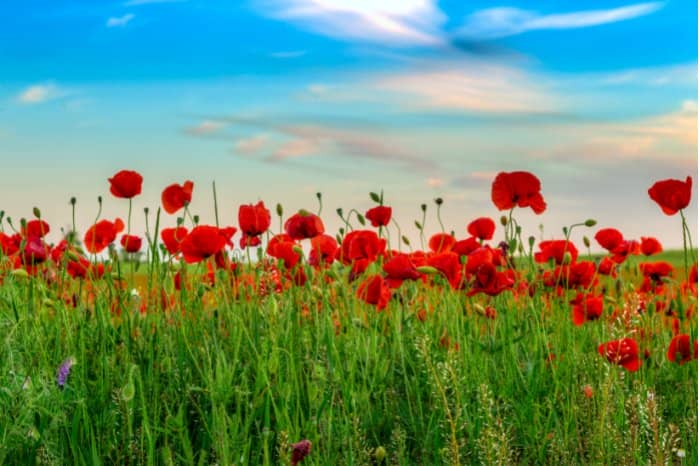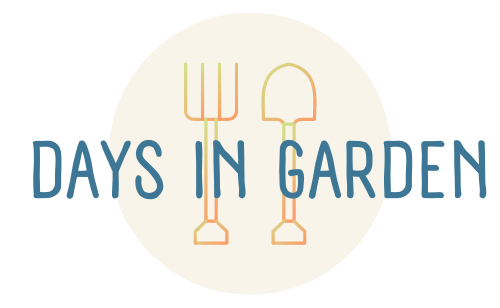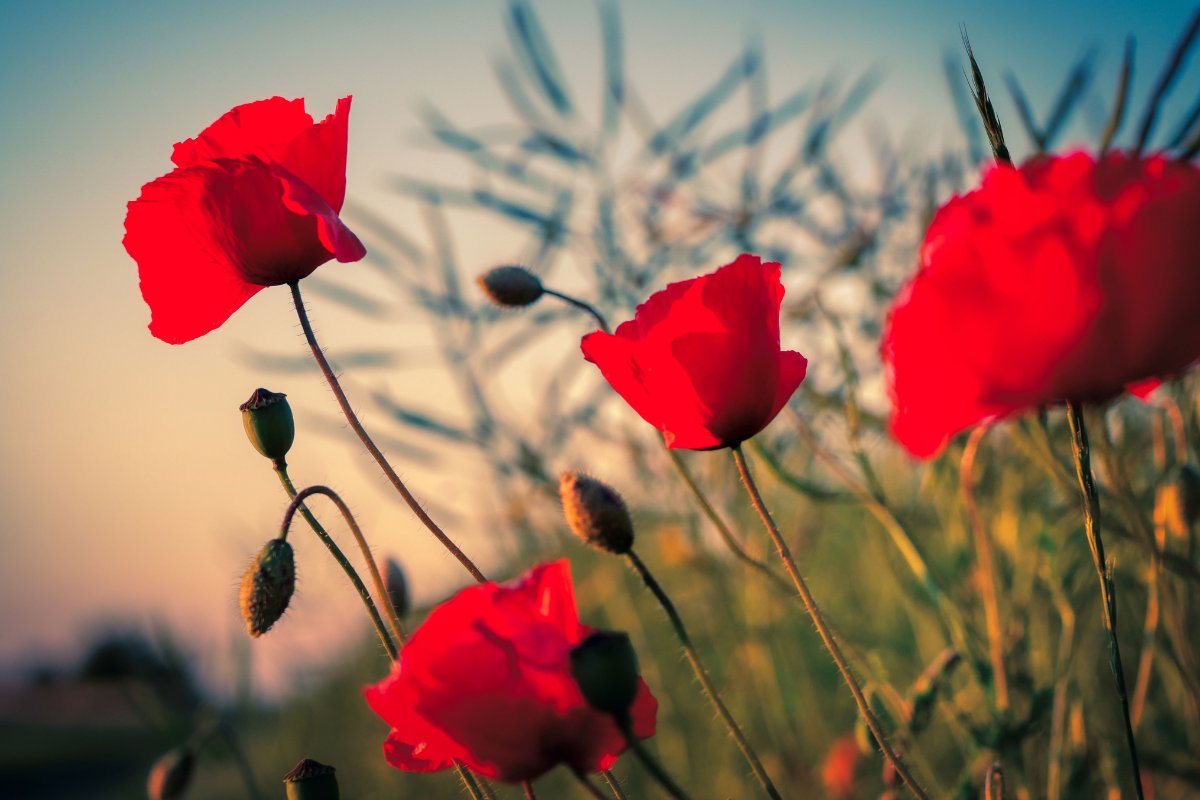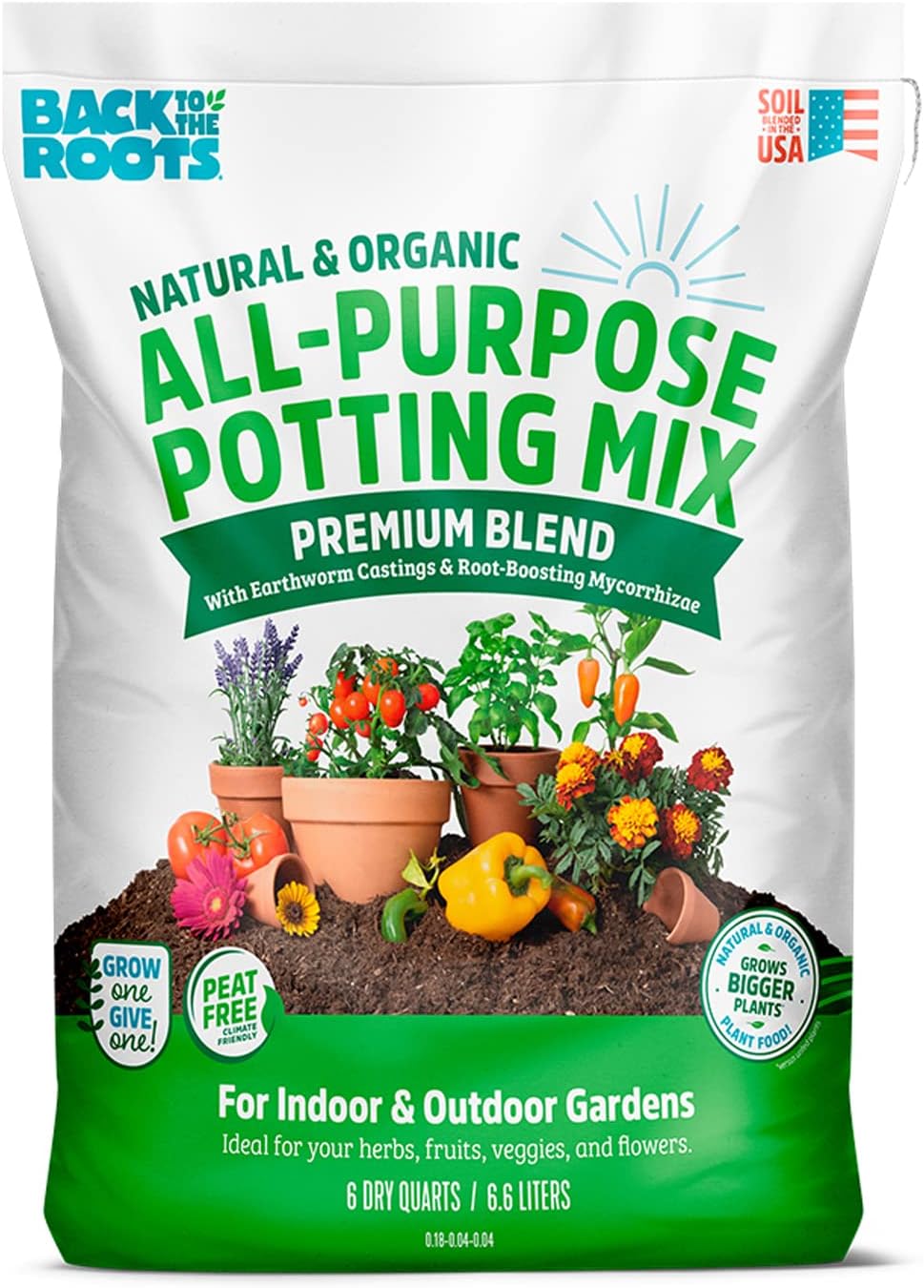Poppies are popular plants thanks to their beautiful, colorful flowers. Before you get planting, you will want to know the best soil for poppies. Using the right soil is key to successfully growing poppies.
With their bright, beautiful colors poppies make a great addition to your garden. There are many great varieties of poppies you can choose from to grow in your garden. Large-flowered oriental poppies tend to be the most popular variety to grow.
All About Poppies
Poppy is the common name used for plants within the Papaveraceae family. Within this group of plants, there are annuals, perennials, and biennials.
Poppies are famous for their tissue paper-like blossoms. They come in a wide range of colors including white, red, pink, purple, yellow, cream, blue, and orange.
Poppies are significant for their symbolism. The red poppy is a symbol of remembrance, resilience, and peace. On remembrance days, poppies are often worn to honor fallen soldiers.

There are over 120 different varieties of poppy flowers. While most varieties of poppies are easy to grow, others can be more tricky to take care of.
So, where do poppies grow? Poppies are grown all throughout the world.
Take Out Time to Also Read:
Care For Poppy Flowers
Poppy flowers can make a beautiful addition to your garden and these poppy-growing tips will help you get started growing your own. There are plenty of great varieties of poppy flowers that you can choose to grow. In order to successfully grow them you will need to provide them with the right care.
This poppy planting guide will help get you started on growing your own poppy flowers. It is important to know how to care for poppies before planting them.
Water
Poppies need plenty of water during the growing season. For poppies growing in containers, you typically want to water them every other day during the growing season.
Light – Best Soil For Poppies
Poppies will benefit from having lots of sunlight. They should receive six to eight hours of sunlight a day for optimal growth. If you live in an area with extreme heat, you will want to grow them in an area where they are protected from the afternoon sun.
Soil
Poppy flowers should be grown in soil that is humus-rich and loamy. The soil should be well-draining and many varieties of poppies do well in moist, slightly acidic soils.
Fertilizer
Fertilizing your poppy flowers is not necessary. However, you can fertilize poppies every two weeks during their first growing season. Use an all-purpose fertilizer or compost tea on your poppy plants. After the first year of growing your poppy plants, fertilize at the beginning and end of each growing season.
Temperature And Humidity – Best Soil For Poppies
Poppy flowers tend not to be too picky about temperature and humidity. However, if the weather is too hot it can be damaging to the plants, so be sure to provide afternoon shade if the temperature gets too hot.
Container Vs Garden Bed
Poppy flowers can be grown in a garden bed or a container. When growing in a container, be sure to choose one with good drainage holes. A medium-sized container will work just fine for growing your poppy flowers.
Poppy flowers grown in containers tend to need more water than ones grown in gardens. Potted potties will not do well in water-logged soil, so good drainage holes are important.
Best Soil For Poppies
When choosing soil for poppies, it is important to choose quality soil. Ideally, you will want to use a potting mix that has been blended with compost.
FoxFarm Ocean Forest Potting Soil Mix Indoor Outdoor for Garden and Plants
This versatile potting mix has everything that your plants need to thrive. The pH level is adjusted at 6.3 to 6.8 to allow for optimum fertilizer uptake.
The composted forest humus, sandy loam, and sphagnum peat moss give it a light, aerated texture your plants will appreciate. To feed your plants so they grow healthy and strong, it includes earthworm castings, seagoing fish, and crab meal.
Back to the Roots Natural & Organic All-Purpose Peat-Free Potting Mix
This organic potting mix is great for your flowers and vegetables. It contains mycorrhizae, coconut coir, and yucca extract to increase your root’s intake of water and nutrients.
The addition of dolomitic limestone neutralizes soil acidity for increased nutrient intake. It includes earthworm castings to help your plants to grow strong and healthy.
Espoma Company Organic Vegetable and Flower Soil
This organic soil mixture contains ingredients derived from aged forest products, aged humus, and/or composted rice hulls. In addition, it includes earthworm castings, alfalfa meal, kelp meal, feather meal, and yucca extract to provide plants with important nutrients.
Limestone is added to adjust the pH levels of your soil so your plants can intake more nutrients. It helps build strong roots for vegetables and flowers.
Choosing The Best Soil For Poppies
Poppies tend to grow best in humus-rich and loamy soil that is well-draining. Fortunately, most good-quality potting soils will be a good choice for growing your poppy flowers. You can grow poppy flowers in containers or gardens, just be sure they get enough sun and water.
Do you have any questions regarding choosing the best soil for poppies? If so, please ask any questions regarding growing poppy flowers in the comments section down below.






